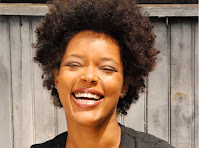The March, 2017 Poetry Is Not a Luxury Book Club selection is Franklinstein by Susan Landers
A place of good blocks and bad blocks and brick roads
and boxwoods. The site
of America’s first gingko tree.
The birthplace of pushpins and Louisa May Alcott.
A place of sparrows and spires and schist
Franklinstein is both poetry and literary nonfiction. Its hybrid poetry/prose genre tells the story of one Philadelphia neighborhood, Germantown—a historic, beloved place, wrestling with legacies of colonialism, racism, and capitalism. Drawing from interviews, historical research, and two divergent but quintessential American texts (The Autobiography of Benjamin Franklin and Gertrude Stein's The Making of Americans), Landers' Franklinstein is a monster readers have not encountered before.
"FRANKLINSTEIN is a church of stained glass truth- telling."—Yolanda Wisher
"In her study of Germantown, Landers derives a poetics of urban history, of being from, really from, a place—Philadelphia—that cuts itself into your skin."—Simone White
Susan Landers on how this collection came to be
At the beginning of this writing I was reading. Reading two books I had never read before: The Autobiography of Benjamin Franklin and The Making of Americans. And as I was reading, I thought: I should make a new book. A new book from pieces. A new book using only Ben’s words and Gertrude’s. And so I did that. For months. Cutting and pasting little pieces. To make a monster. And it was so boring.
It was so boring, my dead thing of parts.
Then the church I grew up in closed. The church where my mother and father were married. The church where they baptized their babies. A church in Philadelphia in the neighborhood where I grew up. A kind of rundown place. A place of row homes and vacants and schist.
And when I went there to see that place—the place that was with me from my very beginning—I thought, this will breathe life into my pieces. This will be the soul of my parents. I thought: if I could write the story of this place and its beginnings, this writing would be the right thing, a kind of living.
This is where my writing began.

